- Home
- B. V. Larson
Mech 3: The Empress Page 7
Mech 3: The Empress Read online
Page 7
The first hint that something was amiss came from off-camera. An odd, keening sound arose. The crewmen onscreen seemed scarcely aware of it initially, but the cries were quickly joined by a dozen similar outbursts.
Next, a blaze of automatic weapons fire erupted—not in the lifeboat compartments, but out amongst the stacked cargo containers in the hold.
Garth fought the controls, finally managing to alter the angle of the camera so he could see what the fuss was about. A female crewman ran into view, clutching her helmet tightly to her head. Was she wearing a tail of some kind? No, it had to be something else. Squinting and zooming in, Garth realized she wasn’t wearing a helmet at all. There was something—something on her head. He realized with a cold shiver that it was a shrade. The enemy creatures were dropping them among the crew.
Matters became uncertain after that. More and more crewmen, people who’d been at the rear ranks with the least effective armament, rushed forward and often fell flopping onto the deck. Some were shot by their nervous comrades. More than one was burned like a flopping, staggering creature from a holovid by the overzealous members of the flamethrower squads when they came too close for comfort.
“They’re behind us, out in the hold! Forget the lifepods! Turn and take cover,” the Captain ordered. His was a booming voice, full of confidence.
The group did so, but the assaults stopped. Uncertain, the group hugged hexagonal cargo cases and peered in every direction at once.
Gunfire then rose up in a wild booming fusilade. Garth worked the camera controls, eyes bulging and looking everywhere at once. Who was firing? Every crewman he saw seemed to be ducking and cowering behind equipment.
Then they sprinted forward. A company of killbeasts. They fired as they advanced. Crewmen who dared to fire back were quickly cut down by more accurate fire, but they did managed to stop a number of the enemy. When the killbeast charge finally reached the crew’s ragged line, they set about slaughtering everyone they came in contact with, shooting them at point-blank range or kicking out with their bladed feet to maim and decapitate. More flamethrowers blazed, burning down screaming crewmen as often as silent, impossibly vital killbeasts.
In less than a minute, the charge had been broken. There were just too many crewmen, they outnumbered the aliens at least three to one. These humans had met with the aliens before, and were not as likely to panic as they might have been in the past. They knew the score: this was do or die. There was little hope that one could run away, so they did not bother. They fought until every killbeast lay still on the deck or was left draped over the cargo containers.
A ragged cheer went up from their ranks, a cry that was echoed by Garth himself. Spittle flew from his lips, but he paid no heed. He wished for a drink, and lamented that none was to be found here in the maintenance cabinets.
“See?” he shouted into the microphone. “We’ve won! We’ve beaten them back. Do you not feel like sick cowards now, Tulk?”
There was no reply from the saloons and lounges. This didn’t trouble Garth. He knew they had seen the spectacle. He hoped they knew shame, but he doubted Tulk were capable of that emotion. Rather than finding brave beings to be inspirational, they considered them to be rank fools, individuals to be despised and marveled at for their credulity.
Something shook the camera then. There was a booming report from inside the hold. Garth panned the viewpoint around again, but could not quite see—
The crewmen were standing, firing—some broke and fled. Towering figures strode into their midst, heedless of bullets, beams, or gushes of sticky orange flame from the surviving flamethrowers. Garth knew what they were, and he could scarcely believe his eyes.
“Juggers?” he asked the monitor in a hushed voice. “How could they have bred them so quickly?”
There were only four of them, but that was enough. The humans had stood up to opponents of their own size, but these monsters were too much. They seemingly could not be brought down by conventional ballistic weaponry. Each absorbed hundreds of rounds, but still kept striding among the humans who harassed it, plucking off limbs and skulls, then vomiting gore after they’d consumed too much. The problem was the crewmen lacked guns powerful enough to puncture these yard-thick monsters deeply and disrupt the vital organs.
The juggers represented the final stage of the battle. The humans broke under their weight, and were run down by thunder-footed monsters. Their tails lashed and their jaws worked as they masticated excitedly. It was a feeding frenzy, and the juggers kept at it for a long time, hunting down each human that hid among the cargo crates and devouring them. Only one of the juggers was brought down, and that one still flopped and thrashed on the deck, trying to rise despite what had to be a dozen fatal wounds.
Garth leaned forward, resting one wiry arm atop the monitor. He wanted to vomit, pass out, or commit suicide. He did none of these things. Instead, he shivered and panted with fear and despair. It was now only a matter of time until these things penetrated the skald bastion.
A figure cast a shadow over him. Garth turned, half-expecting to see a killbeast loom near. It was a far less threatening figure, however. The pallid girl he’d first met, the one who’d let him in, stood in the doorway. Her silhouette was thin, but shapely, and despite his despairing state of mind, Garth thought her face was pleasant to look upon. He wondered at the absurdity of such thoughts at this dismal moment of his existence.
“What do you want?” he asked her.
She tilted her head to the left and advanced. He saw she wore only a thin robe of colored fiber. He blinked at her as she came closer. She reached out a hand and touched his brow. He flinched away, but allowed the contact. His eyes checked her for weapons—but saw only open, empty hands.
“Did you come here to gloat?” he asked.
She shook her head. She lightly kissed his brow where she had first touched him. The action surprised him, but again he allowed it. Was she possibly acting on her own volition? Perhaps her rider slept within her head, and she had seen his sorrow, and wished to comfort him. Hoping for the best, and too drained by the disaster he’d witnessed to care much about the present, he allowed her to sit beside him on a narrow folding workbench.
One thing soon led to another. His every touch she accepted without protest, but she did not allow him to kiss her mouth. He shrugged, not caring. He nuzzled her neck and ran his hands under her sheer robes. She made no attempt to withdraw, but instead pulled him more fully into an embrace with her.
Smiling wanly, she tapped at the floor, indicating he should lie there. He did so, smiling up at her. She hiked up her robes and mounted him. Soon, they were in the throes of passion. He was in ecstasy.
There came a moment of release, and afterward he opened his eyes again. There she was, looking down into his face. Finally, she was leaning down, pursing her lips to kiss him. He had wanted to kiss her as well. He burned to do it.
The spines stabbed his pursed lips, making him cry out. He tried to throw her off, but now she clung to him with maniacal strength. Even as he struggled, the neurotoxins began to paralyze him. His muscles became weak and rubbery within seconds.
The thing in her mouth crept out upon his face as he lay there, helpless in her grasp. They were still coupled, and her hands pinned his wrists. Each of her thin fingers were like steel cables, so weakened was he by the toxins that flowed in his blood now, coursing directly from his stung lips to his brain.
Inside his mind, Garth despaired. The Tulk had stayed in her mouth, with spines carefully retracted until this critical moment when she had spat it out onto his face. Now, it crawled over his cheek toward his nasal entrances, its spines stippling his skin with permanent, livid red tracks.
As the rider named Ornth dug into his skull and mounted him, Garth wondered vaguely what the skald girl’s name was. If he ever managed to regain the reins of his mind again, he decided he would ask her—and then he would kill her.
Five
The Parent rejoiced on the low
er decks of Gladius. Her gambit had been successful, right from the start. Many months ago as the left the Kale system, the humans had come after her invasion forces. She’d realized immediately she didn’t have the strength to withstand them. She also had known they would not stop searching for her until they found her and destroyed her. The decision had been a hard one, but she’d decided to produce an entire generation of offspring, including a decoy young Parent, and set them up with a nest in an obvious location in the main hold.
Months ago, the humans had fallen for the ruse like credulous larvae descending on their first bloody meal. They’d swarmed her broodlings and slaughtered them with glee, burning out the nest and making sure every shell was blackened and every ounce of protoplasm was scraped from the hull. Even at this very moment, the Parent still trembled her orifices when she thought of the sacrifice. Her first live brood—including a fledgling daughter—all dead in the name of the Imperium.
The important thing was it had worked. The enemy had been taken in, and had soon become complacent. She had retreated into the depths of their sewer systems, created a cocooned sac of fluids and hibernated for months. No doubt, they had searched for her in earnest at first, but these quixotic vertebrates seemed to lack conviction and rigid discipline, even in matters of their own survival. Not for the first time, she wondered how such a chaotic species could ever have come to dominate even a small slice of the cosmos. Whatever the reason, she felt she was here to set things right, to put balance back into the equations. The strongest would survive in the end.
Feeding in the sewers for months, she’d carefully scouted with shrades. She’d selected the starboard lifeboat pods to make her comeback. Of all the regions of this vast, thrumming ship, the lifeboats saw even less traffic than the rest of the empty decks. Better still, they were well-stocked with foodstuffs and technological tidbits. In the future, the vessels could be used as seedships when they slowed down to a reasonable velocity and entered an unsuspecting star system.
Matters had nearly become disastrous when the enemy had discovered her second nest and sounded the alarm. The humans had gathered quickly and without hesitation. Fortunately, she’d bred half a squad of juggers by then, and the monsters had broken the enemy line. Disaster had been averted again.
Now, she had new decisions to make. Like her sisters before her, she had to assume she was the last of her kind in the region and could expect no aid from Imperial forces. She must act carefully, and yet decisively. Minor mistakes could be catastrophic.
Studying what records were stored within her biotic memory sacks, she realized her immediate forbearer, the Savant who had failed to take the Kale system from the humans, had managed to build a large military force, but had not followed protocol. In the Parent’s opinion, the Savant had not been bold enough, and had overreached her authority.
Just as when human armies grew larger, they found the need for higher level officers, so it was with the Skaintz. The difference was they never promoted individuals from within their own ranks. Instead, they used their genetic seeds to give birth to their superiors. Each variety of the Skaintz was designed for a specific task—and the repopulation of the empire was beyond the scope of a single Parent.
There were various types to choose between. An obvious selection would be that of a nife, an individual who was a rare male among her species and was well-suited to making military command decisions. This was an obvious choice, but still she dithered. She yearned for something greater—for a rare offspring that had not been birthed in recorded bio-memory.
In the end, after taking the ship for her own, hubris arose within her. She meant well, but she was still a very young parent, and all on her own. She decided to breed an Empress. It would be the first such being to wriggle out of a Parent’s birth chamber in a thousand years.
#
Garth awakened, but could not move. He quickly found he was trapped inside his own skull. He’d experienced this before, of course, but it had been years since the last time he’d shared control of his body with a Tulk rider.
His initial reaction was panic. This was normal, and common among fresh mounts. They were in pain, and disoriented. They had yet to accept the new creature who held the reins to their bodies. Often, pubescent skalds injured themselves in the first hours, bucking and raving. They might chew off their own tongues or otherwise damage themselves, and so were generally restrained.
No less than seven skalds clung to Garth’s limbs as he thrashed and writhed, making incoherent gargling sounds in his throat. After a minute or two of this behavior, during which his seven captors silently and stoically held him pinned upon his back in the main lounge, Garth quieted. He panted, and pink foam ran from the corners of his mouth. His wild, staring eyes rolled in his head, while the others watched him with bland expressions.
“It appears he is quieting,” said a skald in a soft voice.
“We had to expect a difficult mounting,” said another, “after all, he was a rogue. But Ornth is an experienced rider. He has broken in a dozen mounts—this one will be no different.”
At these words, Garth began to grin and giggle. He suppressed the urge to go further, to wildly cackle. They were fools. He could not be ridden. He’d discovered how to dislodge Fryx, and he would have no other Tulk in his place.
But now was not the time. Now, they were all watching him. He forced himself to calm down, to stay quiet. To appear glassy-eyed and troubled—but not triumphant and rebellious. That time would come later.
A familiar face came into his scope of vision. Her golden locks hung at random around her pale face. She studied him—and he measured in her eyes a sense of remorse. Perhaps her rider had forced her to seduce him. Perhaps, if she had been in control of her own body, she would not have spat Ornth into his face and allowed the little monster to sting him with its dripping spines.
She did not address him as he studied her face. But she did purse her lips and inquire among the others as to his health. Garth steeled himself against her charms. It did not matter if she was remorseful, or if she was partly innocent. She had betrayed him, and he planned her death. He planned to murder them all.
Bubbling with mirth, he laughed again. It was a long, odd sound. A sound full of madness, rather than joy. Watching him, the skalds exchanged concerned glances.
#
The birthing of a new Empress was solemn affair. The Parent and her offspring gathered closely, each of them committing a portion of their own protoplasm to the central mass in a stately ceremony. The young Empress resembled a squid, with a tangle of writhing tentacles, an oblong lobe filled with brain tissue and a half-dozen roving eyes. She was very young and the birth-slime still glistened on her carapace. But already the Parent could see she had managed the replication cleanly. She’d worried her genes were too old, too heavily radiated or atrophied to provide a good copy—but she’d pulled it off.
The young Empress squirmed inside a bed of human bones and clothing strips. The material was alien, but formed a good cradle and was softer than any of the resins the Skaintz secreted naturally. The Parent and a shuffling group of killbeasts looked on expectantly, while the Empress surveyed them. Each eye tracked a different individual of her court.
Over the next several hours, the Empress fed on choice meats from the bipeds and absorbed a gentle flow of information, which her elders transmitted to her. Occasionally, the Empress signaled the information was coming too slowly. Each time this happened, the Parent shivered happily and increased the rate of the transmissions. This was exactly as it should be. They were supposed to guide the fine mind of the Empress by building within her a thirst for knowledge. This was accomplished by giving her data in bits and pieces, always leaving her wanting more, rather than flooding her with every fact at hand and causing her to become disinterested and indolent. Even a monarch needed guidance at this young age.
Unlike the offspring of the bipeds who had built this huge, odd ship, the Skaintz young were born with a considerable am
ount of knowledge. A human baby knew some things, such as when to suckle or cry, and even how to swim in a rudimentary fashion. But the human mind was largely a blank slate at birth, and took long years to develop from input. The Skaintz were more instinctual. Depending on their basic form, they were bred to their tasks. It was as if a human baby was born with a full understanding of the native tongue of their people and could talk at birth. Skaintz offspring were formed with neural pathways pre-built in their minds. They instinctively knew how to communicate with their species and their role within the nest. Even so, they had precious little to say at first and needed to be filled in on current events.
The Empress therefore listened intently for many hours. Her first cognitive transmission came half-way through the second day.
“Why have I been awakened in such a dreary place?” she asked. Her tone was not that of an innocent child, but rather one of irritation and disdain.
“Because, my Empress, this is the best I could provide at the moment,” the Parent replied evenly. She quivered and dribbled, such was her pride to receive her impressive offspring’s first transmissions. She had done what no other Parent had managed in perhaps in a thousand years: she had given birth to nobility.
“Where are my courtesans? Where are my amusements?”
The Parent tapped her throne with her feeding tube, a sign of impatience. “We are not in our home system. We are roughing-it, so to speak, my dear. I believe this information was transmitted to you as part of—”
“Yes, yes,” said the Empress. “I found many of the transmissions tiresome. You will build me new amusements and give birth to no less than seven courtesans immediately.”
The Parent stopped tapping her feeding tube and stared at the demanding creature before her. She felt an overwhelming compulsion to obey the squirming creature, but at the same time, she knew such expenditures of time and energy were wasteful. They needed to dedicate themselves to arriving in a new star system and taking it by force. This was the time to plot a military campaign, not to build amusement tanks and similar frivolities.

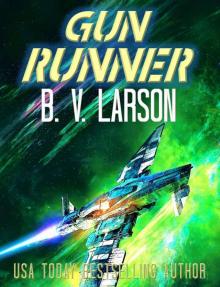 Gun Runner
Gun Runner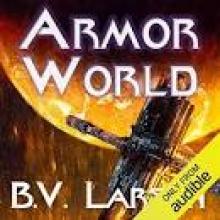 Armor World
Armor World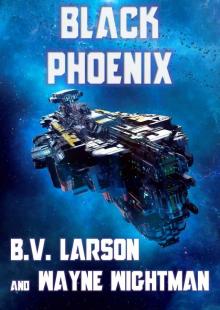 Black Phoenix
Black Phoenix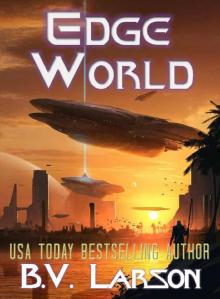 Edge World (Undying Mercenaries Series Book 14)
Edge World (Undying Mercenaries Series Book 14)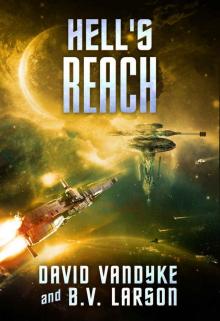 Hell's Reach (Galactic Liberation Series Book 6)
Hell's Reach (Galactic Liberation Series Book 6)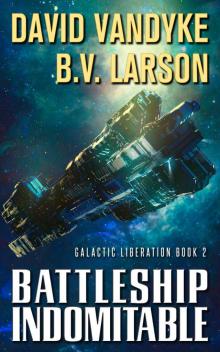 Battleship Indomitable
Battleship Indomitable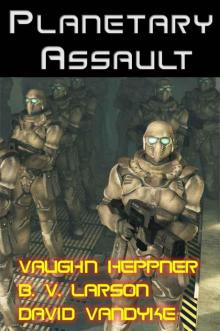 Planetary Assault (Star Force Series)
Planetary Assault (Star Force Series)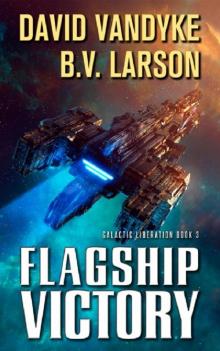 Flagship Victory (Galactic Liberation Book 3)
Flagship Victory (Galactic Liberation Book 3)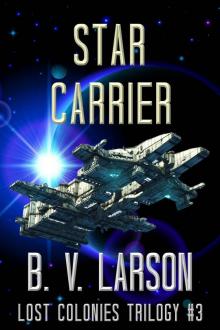 Star Carrier (Lost Colonies Trilogy Book 3)
Star Carrier (Lost Colonies Trilogy Book 3)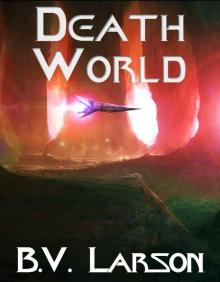 Death World (Undying Mercenaries Series Book 5)
Death World (Undying Mercenaries Series Book 5)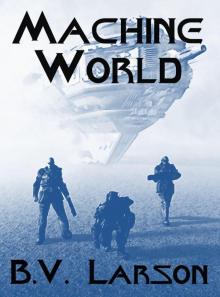 Machine World (Undying Mercenaries Book 4)
Machine World (Undying Mercenaries Book 4) Mech 2
Mech 2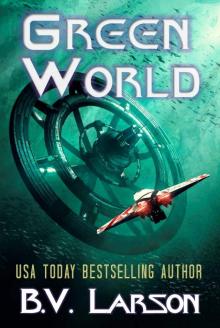 Green World
Green World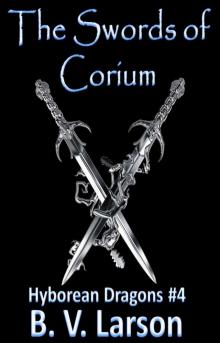 The Swords of Corium
The Swords of Corium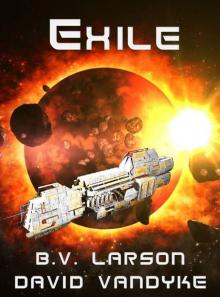 Star Force 11: Exile
Star Force 11: Exile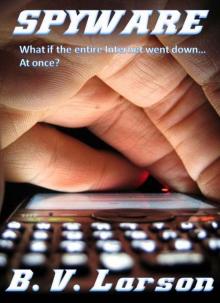 SPYWARE BOOK
SPYWARE BOOK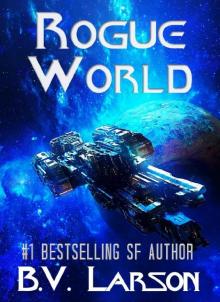 Rogue World (Undying Mercenaries Series Book 7)
Rogue World (Undying Mercenaries Series Book 7)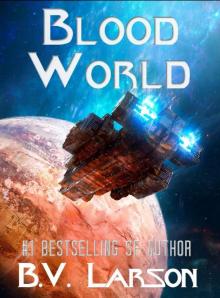 Blood World (Undying Mercenaries Series Book 8)
Blood World (Undying Mercenaries Series Book 8)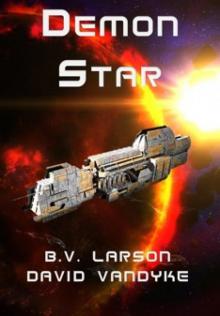 Demon Star
Demon Star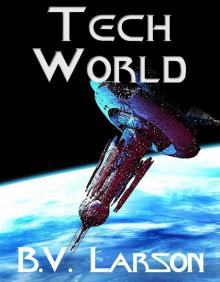 Tech World (Undying Mercenaries Series)
Tech World (Undying Mercenaries Series)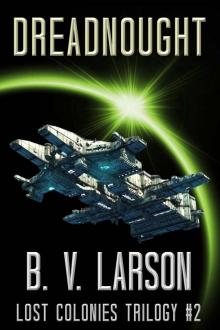 Dreadnought (Lost Colonies Trilogy Book 2)
Dreadnought (Lost Colonies Trilogy Book 2) Shifting
Shifting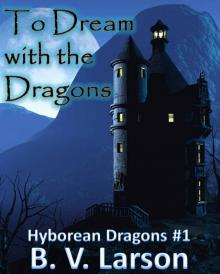 To Dream with the Dragons (Hyborean Dragons)
To Dream with the Dragons (Hyborean Dragons)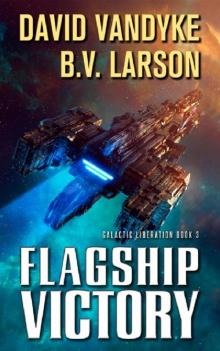 Flagship Victory
Flagship Victory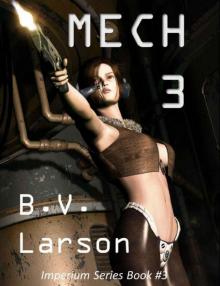 Mech 3: The Empress
Mech 3: The Empress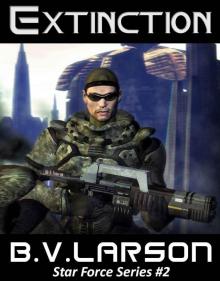 Extinction Ebook Full
Extinction Ebook Full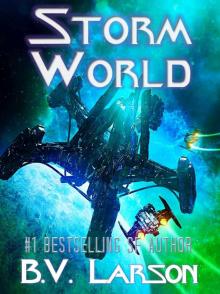 Storm World (Undying Mercenaries Series Book 10)
Storm World (Undying Mercenaries Series Book 10)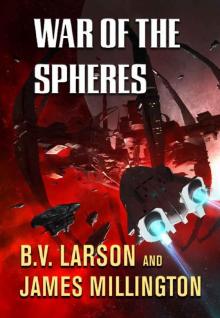 War of the Spheres
War of the Spheres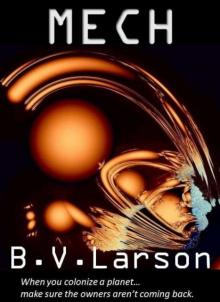 MECH EBOOK
MECH EBOOK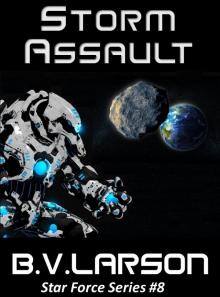 Storm Assault (Star Force Series)
Storm Assault (Star Force Series)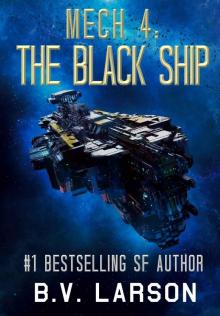 Mech 4: The Black Ship (Imperium Series Book 5)
Mech 4: The Black Ship (Imperium Series Book 5)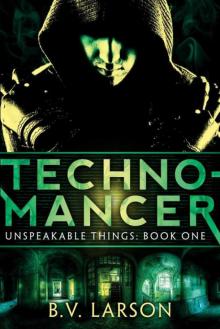 Technomancer
Technomancer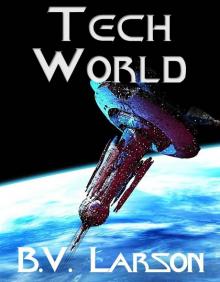 Tech World
Tech World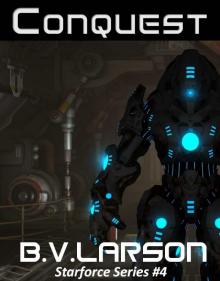 Conquest (Star Force Series)
Conquest (Star Force Series)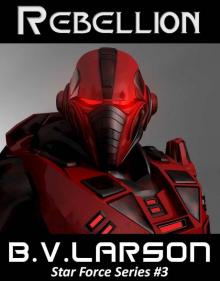 Rebellion sf-3
Rebellion sf-3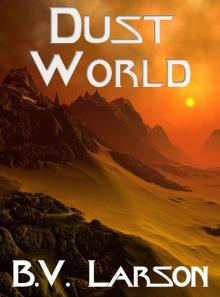 Dust World
Dust World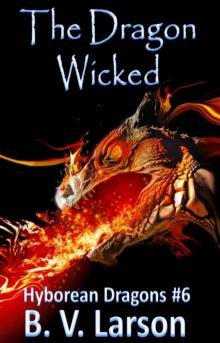 The Dragon Wicked
The Dragon Wicked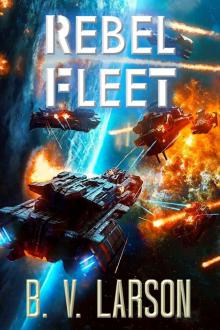 Rebel Fleet
Rebel Fleet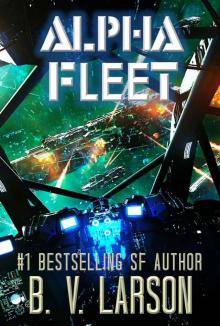 Alpha Fleet (Rebel Fleet Series Book 3)
Alpha Fleet (Rebel Fleet Series Book 3)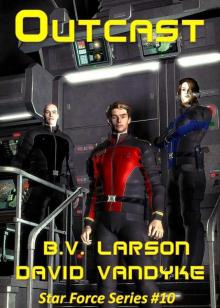 Star Force 10: Outcast
Star Force 10: Outcast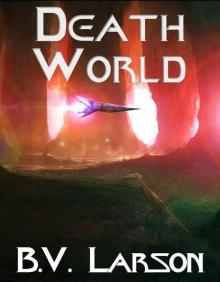 Death World
Death World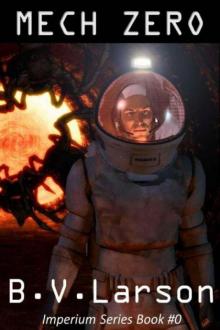 Mech Zero: The Dominant
Mech Zero: The Dominant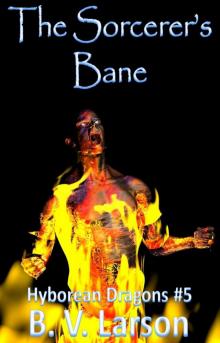 The Sorcerer's Bane
The Sorcerer's Bane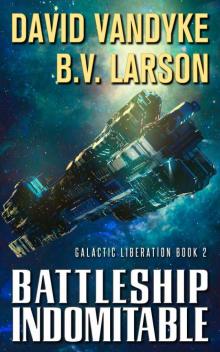 Battleship Indomitable (Galactic Liberation Book 2)
Battleship Indomitable (Galactic Liberation Book 2)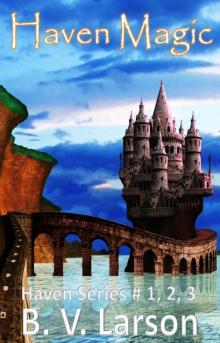 Haven Magic
Haven Magic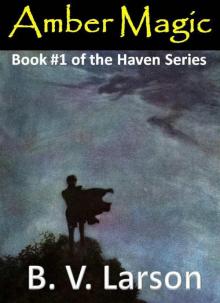 Amber Magic (Haven Series #1)
Amber Magic (Haven Series #1)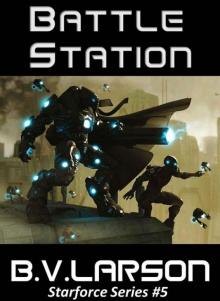 Battle Station sf-5
Battle Station sf-5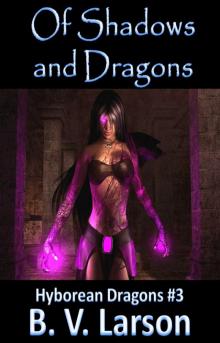 Of Shadows and Dragons
Of Shadows and Dragons Starfire
Starfire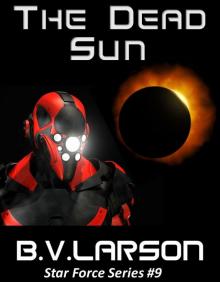 The Dead Sun (Star Force Series)
The Dead Sun (Star Force Series)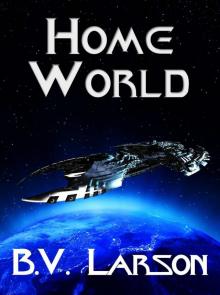 Home World (Undying Mercenaries Series Book 6)
Home World (Undying Mercenaries Series Book 6)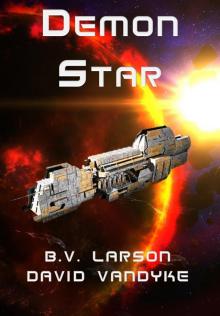 Star Force 12 Demon Star
Star Force 12 Demon Star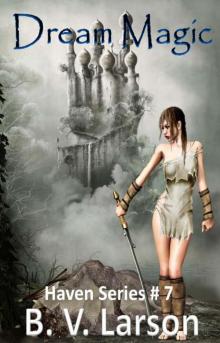 Dream Magic
Dream Magic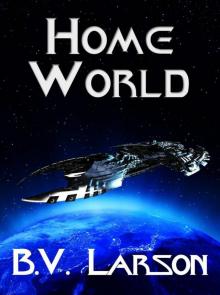 Home World
Home World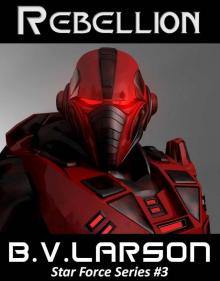 Rebellion Ebook Full
Rebellion Ebook Full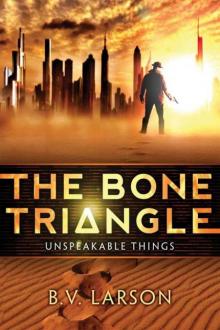 The Bone Triangle
The Bone Triangle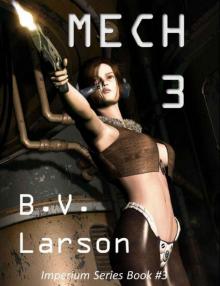 The Empress i-3
The Empress i-3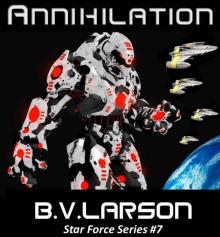 Annihilation (Star Force Series)
Annihilation (Star Force Series)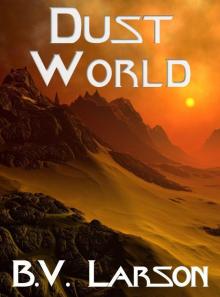 Undying Mercenaries 2: Dust World
Undying Mercenaries 2: Dust World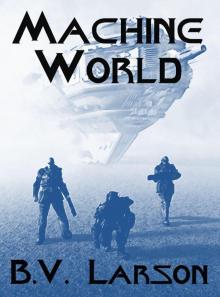 Machine World
Machine World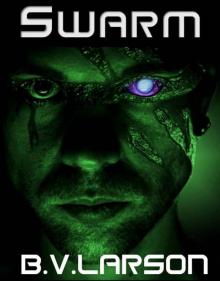 Swarm
Swarm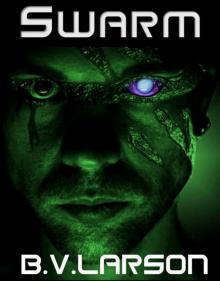 Swarm sf-1
Swarm sf-1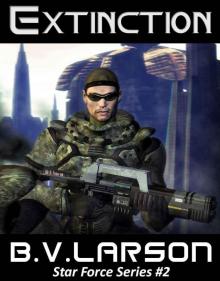 Extinction sf-2
Extinction sf-2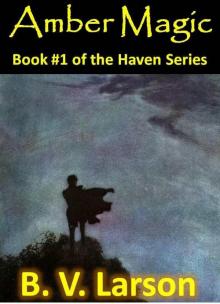 Amber Magic h-1
Amber Magic h-1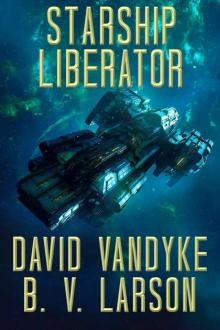 Starship Liberator
Starship Liberator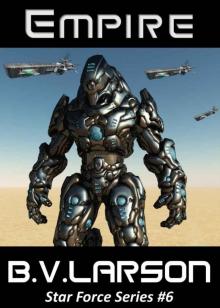 Empire Ebook Full
Empire Ebook Full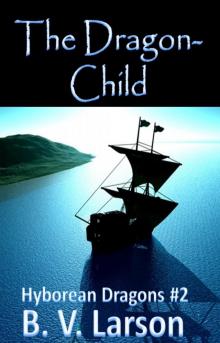 The Dragon-Child
The Dragon-Child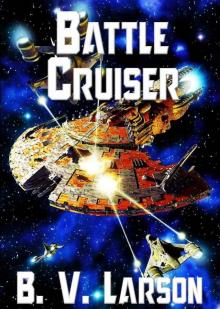 Battle Cruiser
Battle Cruiser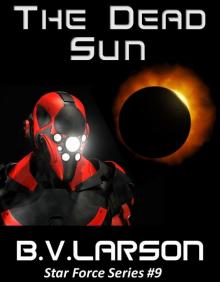 The Dead Sun
The Dead Sun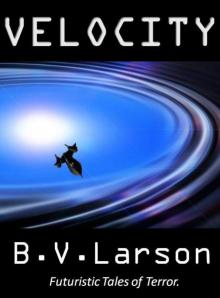 Velocity
Velocity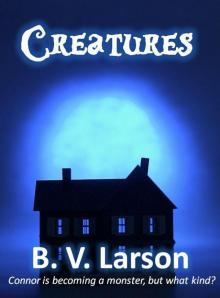 Creatures
Creatures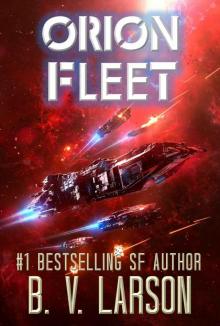 Orion Fleet (Rebel Fleet Series Book 2)
Orion Fleet (Rebel Fleet Series Book 2)